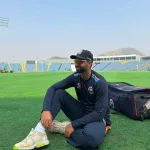In the picturesque valley of Kashmir a silent battle for gender equality rages on amidst the transforming societal norms and complexities.
The respect for women has been overshadowed by the harsh reality of discrimination, prejudice, and humiliation.
The reality is that many families are uprooting themselves, leaving behind homes they have known for generations, all in pursuit of a seemingly elusive ideal match. This migration is a testament to the lengths parents are willing to go to ensure the happiness and future of their children.
In the 21st century, as the world progresses, Kashmir seems trapped in a time warp. The journey for a Kashmiri woman begins with the pursuit of education, a fundamental right. However, this pursuit is tainted by the looming societal judgment of her age.
Sharing her experience, Shereen Dar an engineer by profession says, ” When my parents were looking for a match for me, in the midst of a conversation with the matchmaker, my mother saw her patience waning as the matchmaker continued to harp on about the girl’s age and size. The matchmaker’s taunts and degrading comments pushed my mother to her breaking point. She couldn’t bear to see her daughter’s worth reduced to mere numbers.”
She further added “It is disheartening to see that some deeply ingrained mentalities remain unchanged despite living in the 21st century. The stories of girls enduring violence, depression, and sacrificing their own happiness for the sake of societal expectations are far too common. Before marriage, young girls often idealize the life they will share with their future husbands. They envision a happy family, but the stark reality of domestic violence and depression paints a different picture.”
In Kashmir the individual well-being and happiness should take precedence over rigid societal norms. It calls for a society that recognizes the importance of mental health and emotional well-being for both men and women, ultimately working towards a brighter future for all.
Attributing the menace to the unemployment issues, Kashmir’s renowned historian and poet Zareef Ahmad Zareef said,”There is the issue of unemployment prevalent for the past three or four decades, how will they get married when they don’t get employment. In this regard I have also written one of my poems.
“Koren Che Wieriv Goudei Prichaan “
“Nosh Kour Kate Service Karaan”
” Kya Grade Chas , Keis Naukri ”
” Taraangari Taraangari “
“Girls are first asked by their in-laws what position they hold
and how much does she earn? if she earns more and if the job is good, then the relationship would be approved and if it is not so, the proposal is rejected with some excuse.”
He further added, “ In Kashmir one of the biggest reasons is casteism , there is a proper Kashmiri word for it called ” Zache Zaet”which means looking for “Same Standards”. In Kashmir we only look for money and property while planning a marriage but not the character of a boy or a girl. But we have no one who can teach us this .It is our responsibility to change our mentality so that we can build a society free from all societal bias.”
Breaking of relationships has become alarmingly frequent, leaving a trail of heartache in their wake. The responsibility for these broken bonds lies not just with the individuals but also with the society and families that influence them.
One cannot help but wonder why families don’t prioritize educating their children about the importance of individual well-being over societal expectations.
The emotional toll on young individuals, like the enthusiastic girl whose engagement was abruptly ended by an indifferent suitor, is immense. It’s a stark reminder that it’s not just about finding fault; it’s about changing mindsets. It’s about guiding young people towards healthier choices and more balanced priorities.”
“An older groom is acceptable, while an older bride becomes the subject of gossip, ridicule, and cruelty. The core of the issue lies in the treatment meted out by matchmakers, relatives, and society itself. Matchmakers, entrusted with the sacred task of uniting souls, begin by tarnishing a girl’s reputation and her family’s honor. The degradation we endure makes us question the very institution of marriage. Trapped between societal norms and the aspirations, we contemplate the unthinkable.”Rafiya Mir , a homemaker from Baghaat area of Srinagar said.
She further said, “Our society must realise that real empowerment grooms equality and respect for all. It is only through positive, continuous efforts and the collective participation of both men and women that Kashmir can emerge from the shadows of gender bias and allow every woman to shine as the goddess she is meant to be.”
This disconnect between expectation and reality can be crushing. It’s not just the girls who suffer; some men are also pressured into marriages they may not be ready for or interested in. These unions often lead to problems that affect both partners, creating a cycle of unhappiness and broken relationships.
Kashmir’s Societal Complexities and Struggle for Gender Equality
Leave a Comment Leave a Comment





